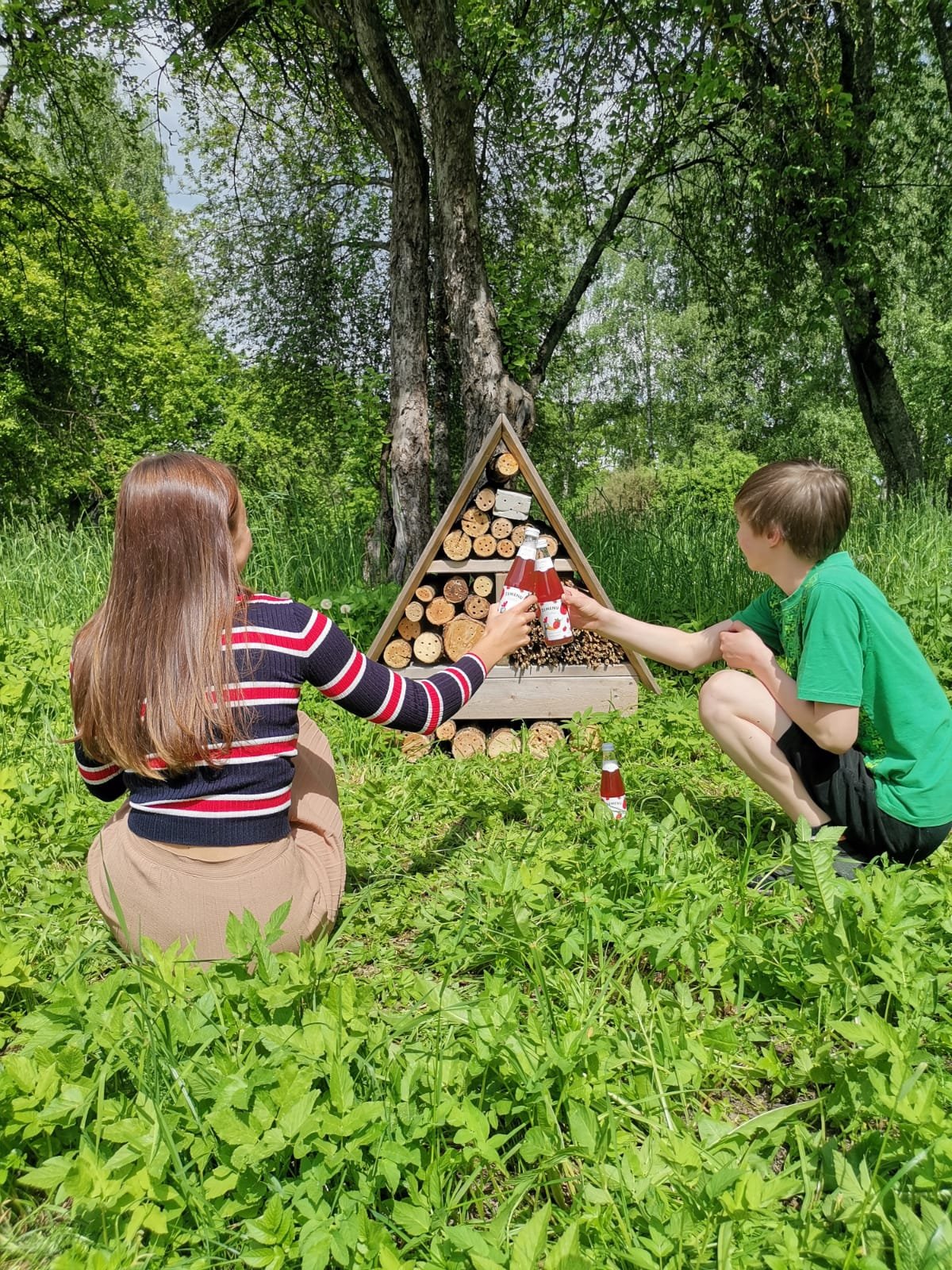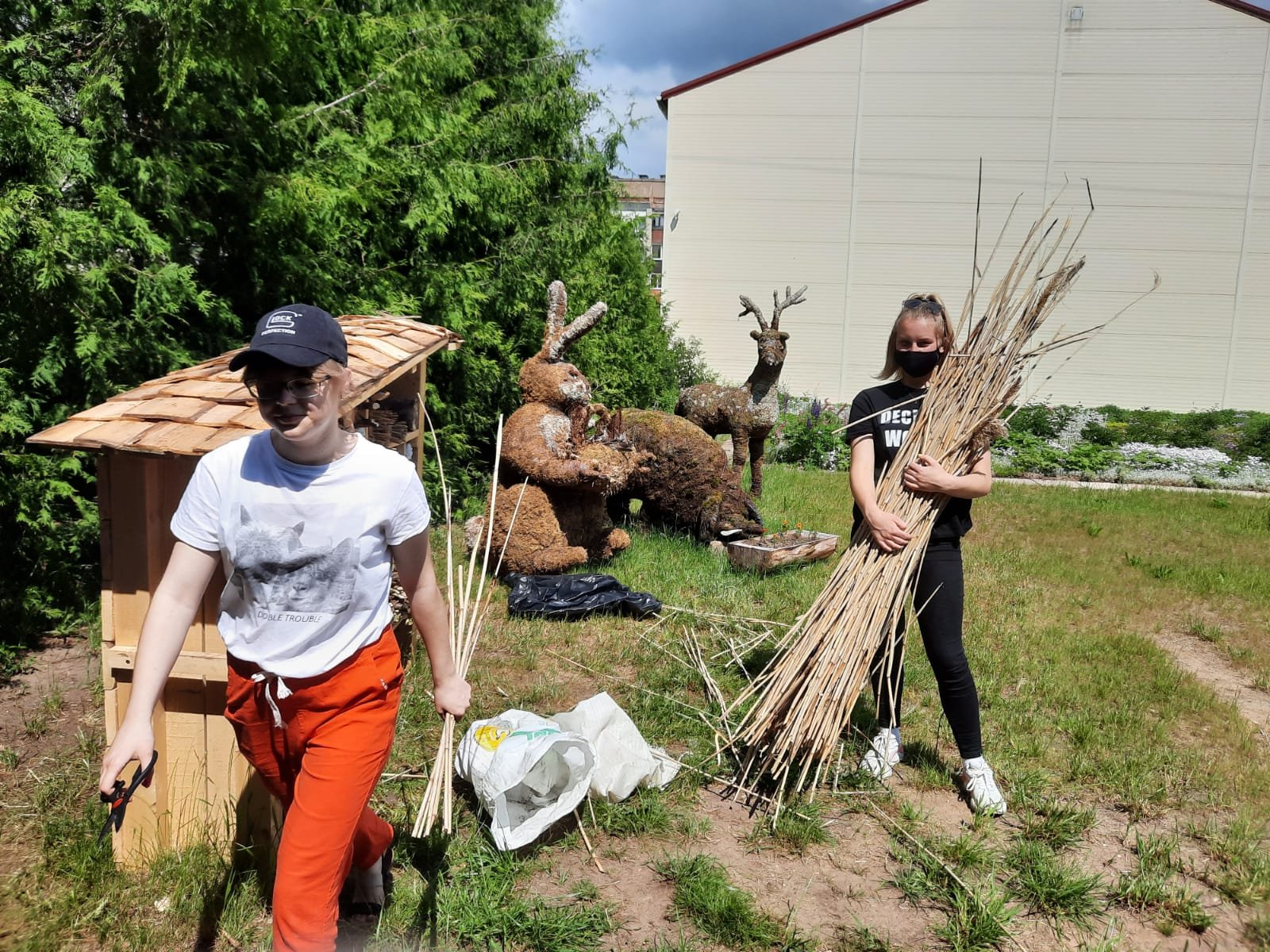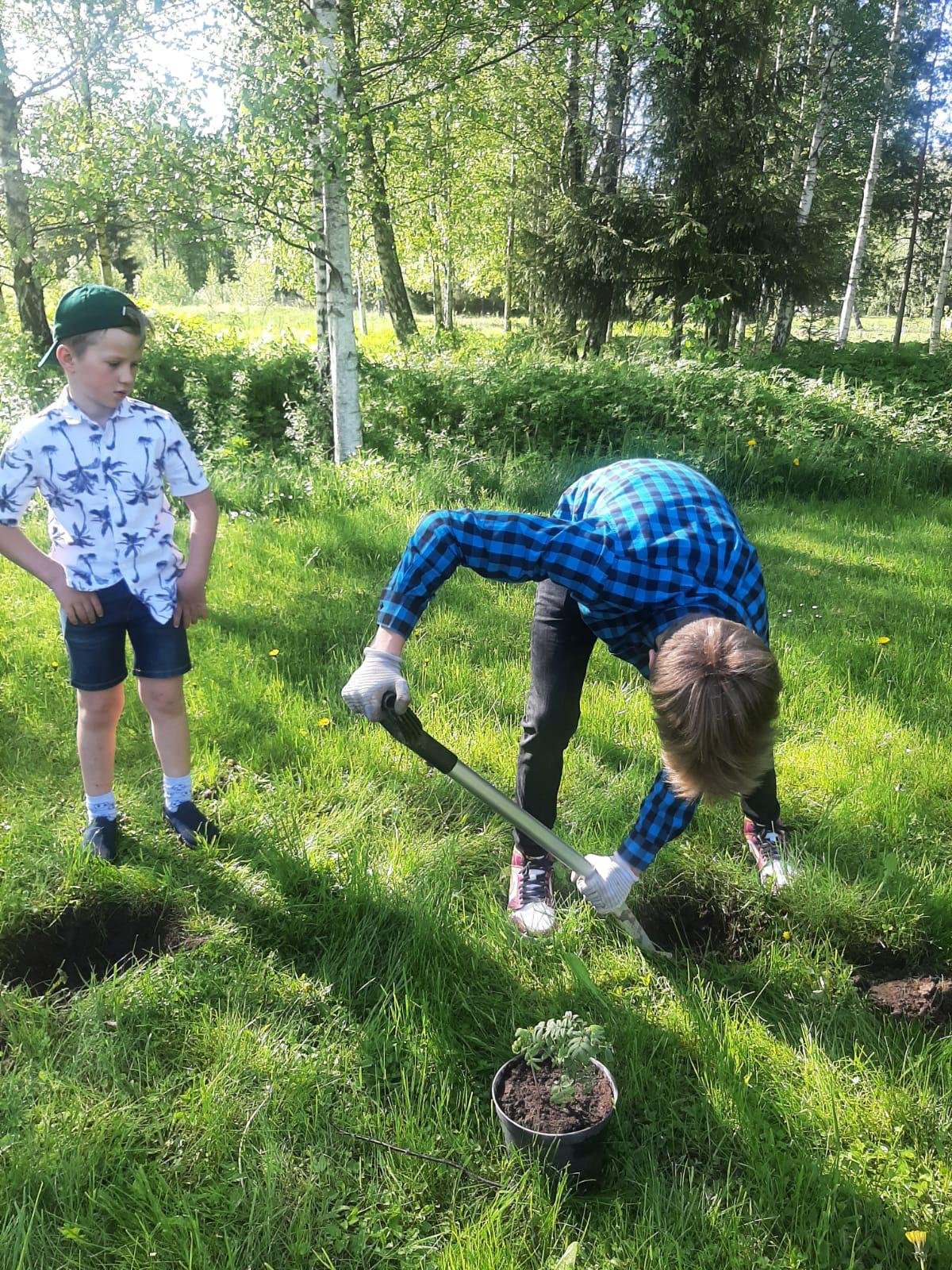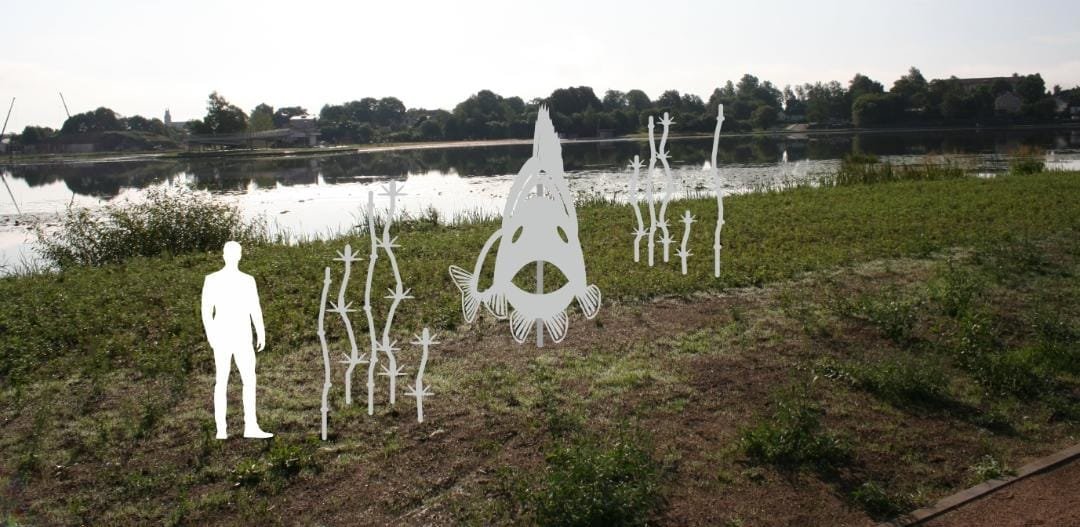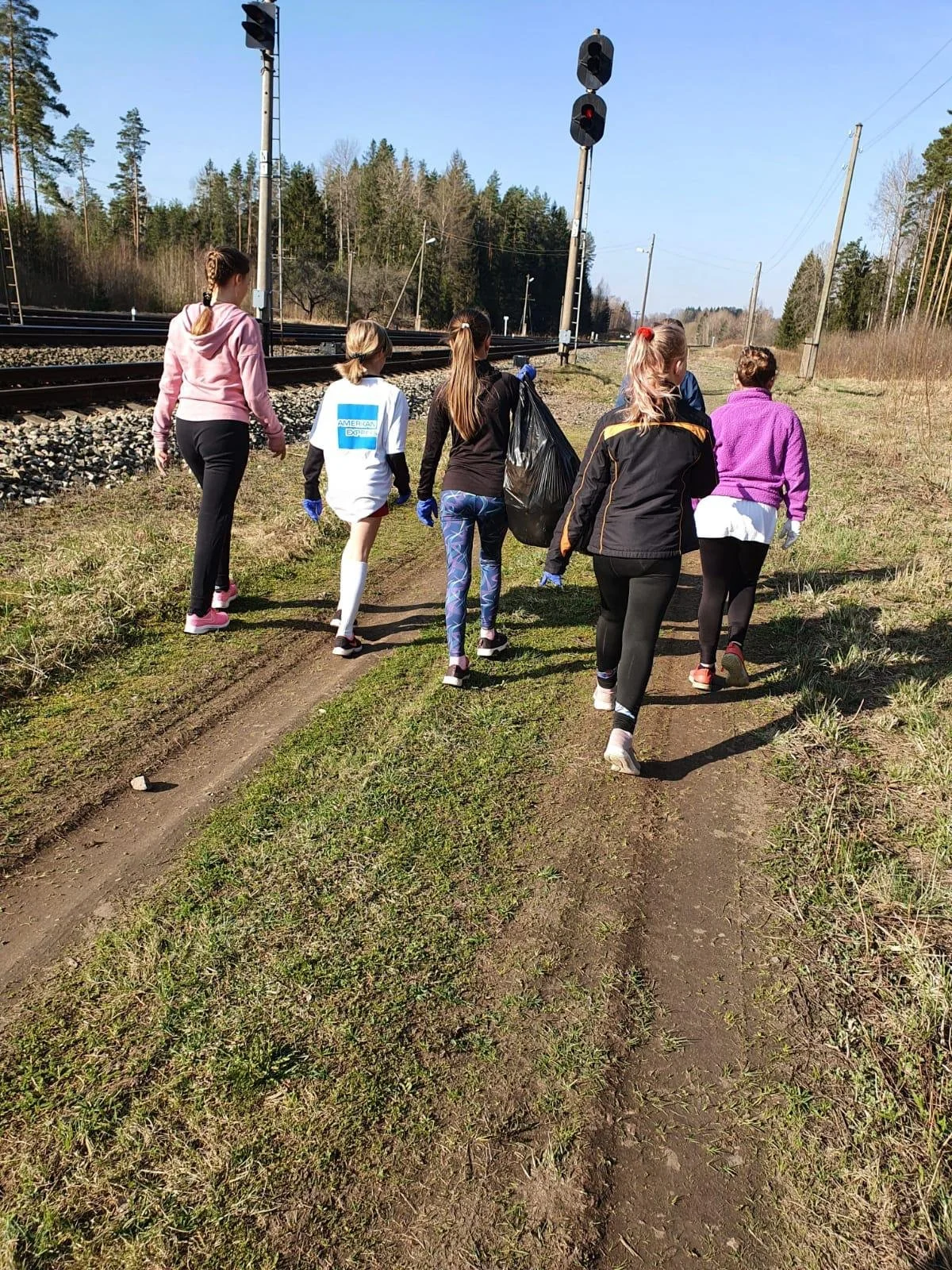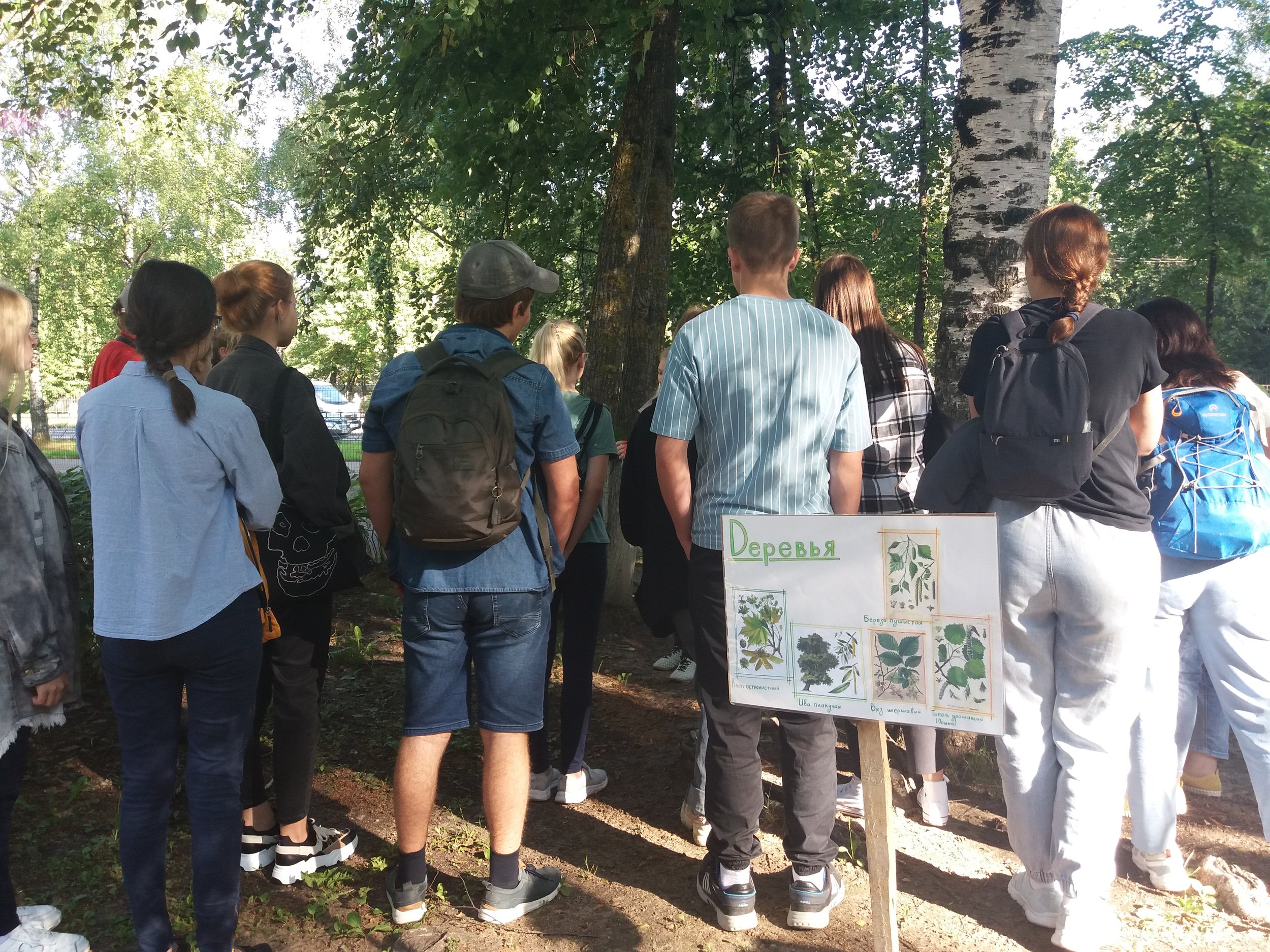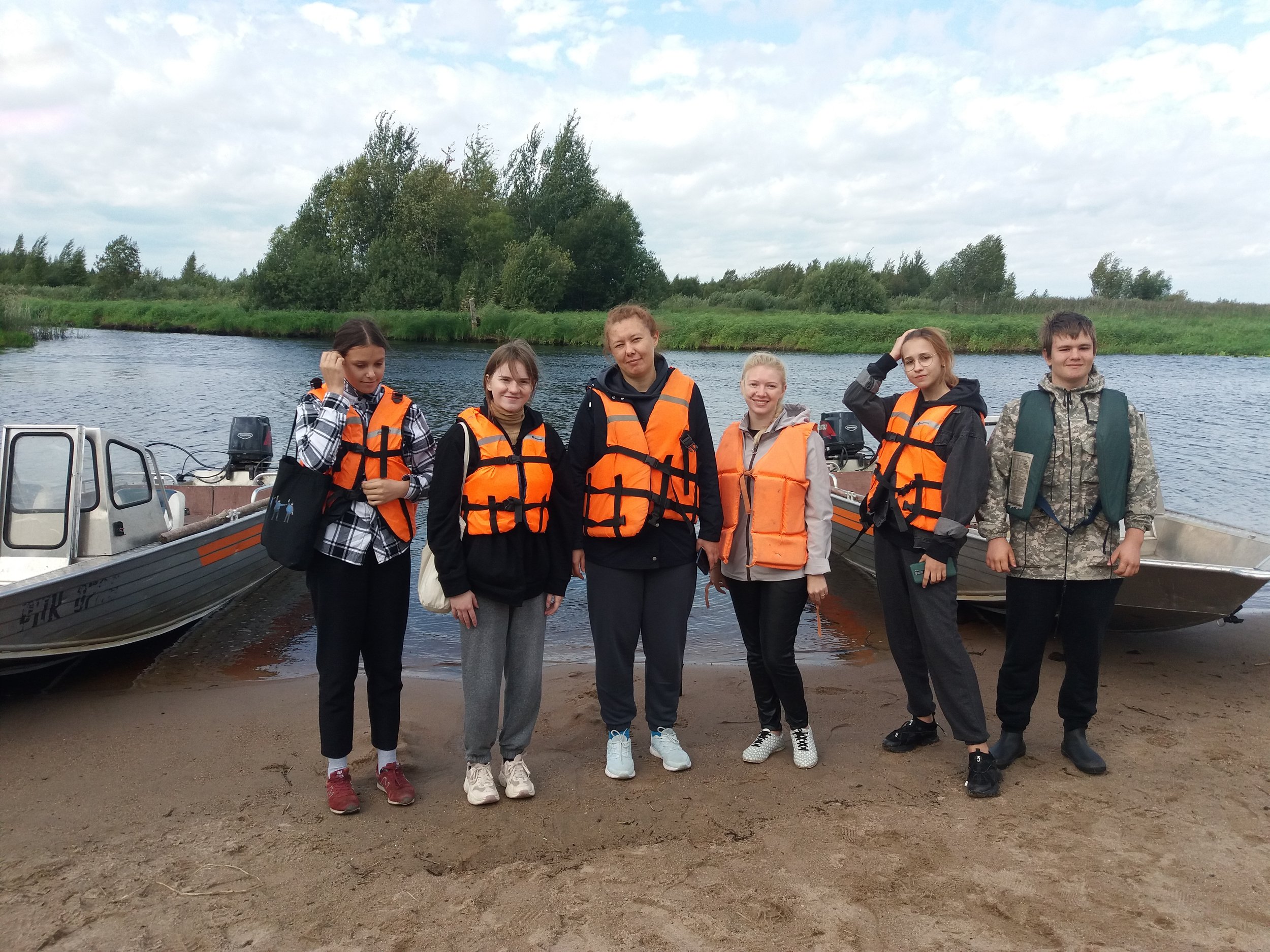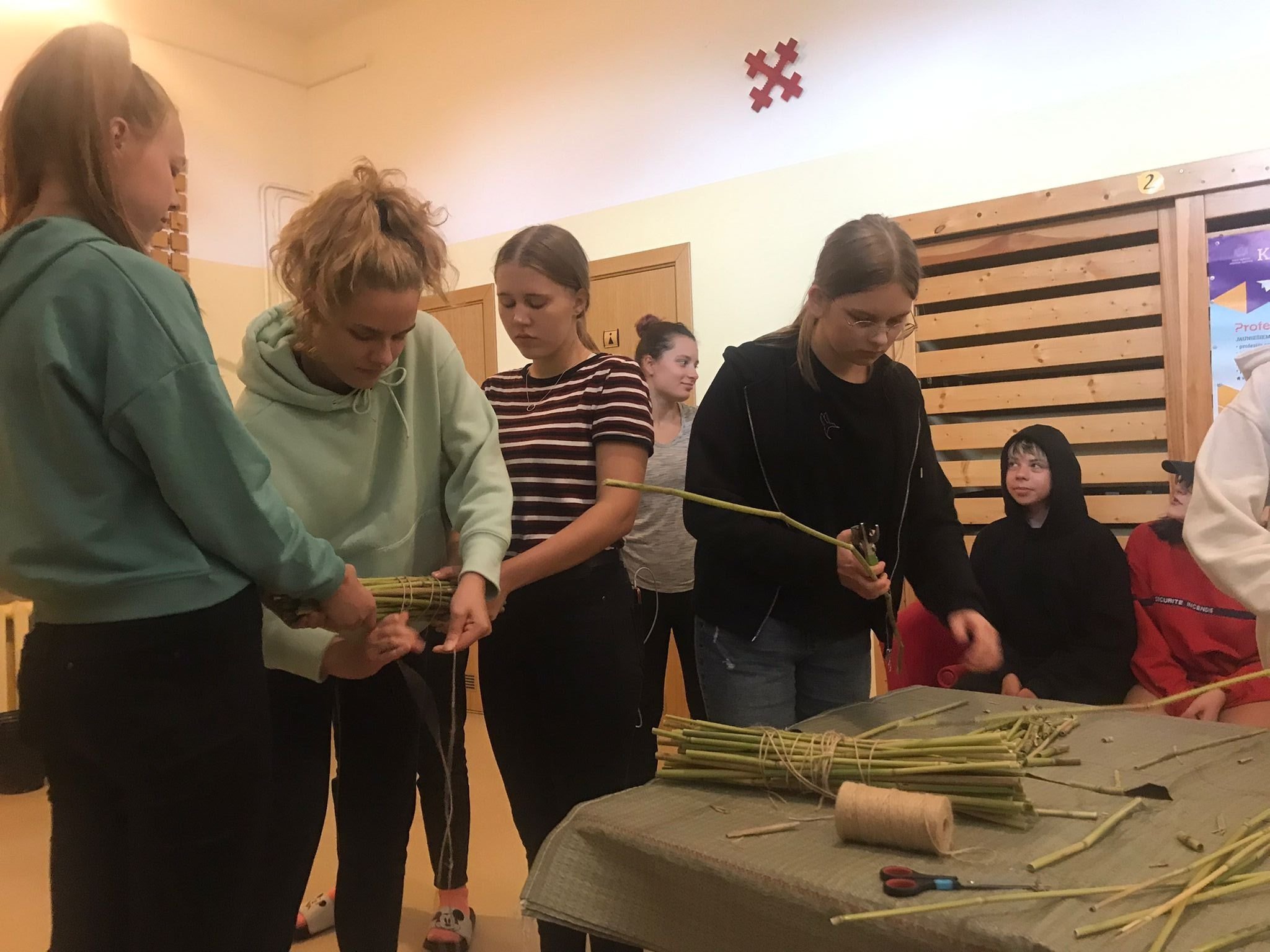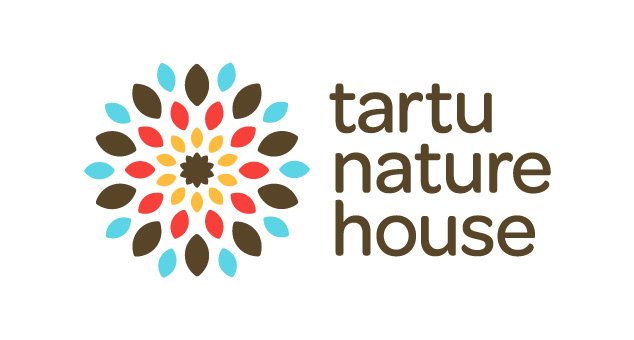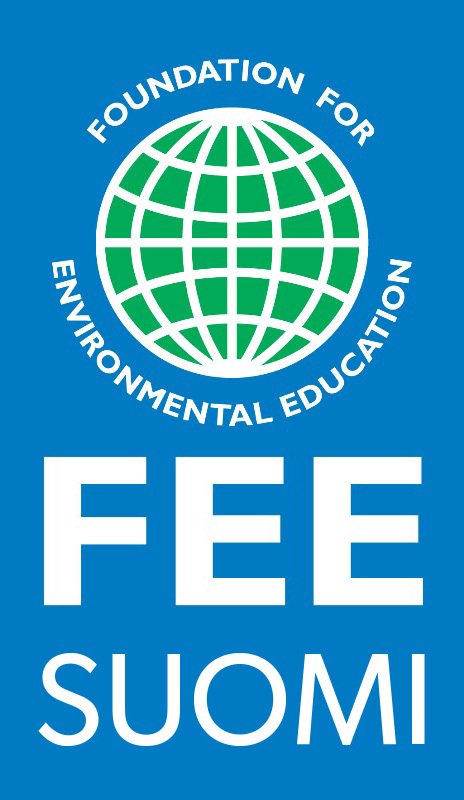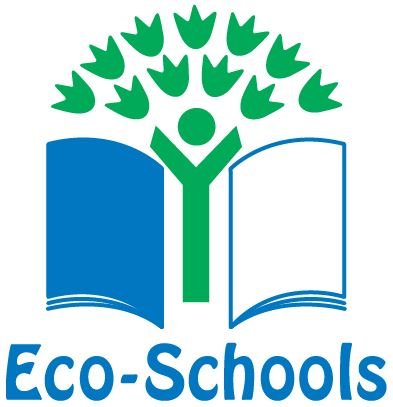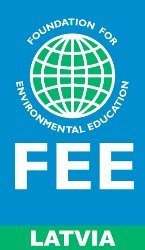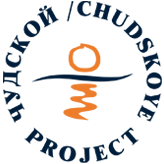2021 has been a challenging year forcing most people to adapt to the new reality. The most effective keyword to connect with this period of time and our project Youth Eco Hub is a “challenge”. A challenge that brought us an opportunity to use our time wisely, to grow our capabilities and expand our perspectives.
This project was conducted with young people and their mentors from four countries: Finland, Estonia, Russia, Latvia. Youngsters were taking online courses to live more sustainably, even though it was meant for us to meet in person, we were glad to be there with them on our computer screens.
“It was especially valuable that all project participants were able to communicate and actively discuss, online communication did not become an obstacle for this, the initiatives of all project groups. In the process of communication, the children were able to expand their understanding of the interests and hobbies of their peers from different countries, as well as come to an understanding of the contribution of youth activities to reduce climate change on the path to sustainable development.” Tatjana, a mentor from Russia.
To achieve their goals, youngsters and mentors were given a different methodology and offered a theoretical perspective to understand which method, set of methods, or best practices can be applied to the research. This methodology material was translated into five languages so it could be used for any needs applied. These methods have already been introduced and used in NGO sectors and schools.
Now we have twenty breakthrough ideas that came to life earlier this year – all dedicated to these three topics: biodiversity, climate change and the circular economy, depending on the problems of each country – planning, running and taking part in a biochar making workshops as well as making bokashi compost for the first time, planting trees, flowers and other herbs to support insects in their natural habitats by building them “hotels” and other sculpture-like environmental objects. Also making discussions to raise awareness of how tiny plastic particles are polluting our soil and water reservoirs, modelling informative materials and model of the mechanism of how to turn organic waste into the gas and how to prevent stubble burning and so on.
“This project gave me experience in creating and implementing an initiative that allowed me to meet new people. But in wider meaning raised awareness of climate issues, experience in living a more environmentally friendly and healthier lifestyle.” Annija, a youngster from Latvia.
“The students who took part in the project definitely gained knowledge about pollinating insects, their meaning, needs and how to help them. Pupils got an idea of participating in projects, how to plan, how to set goals, how to implement them and how to work together.” Ieva, a mentor from Latvia.
During summer, youngsters had a chance to meet for a learning experience. Each team went on an excursion to search for some objects related to the project topics. They visited the solar collector park, zero-waste restaurant, landfill, national park trails and protected areas, etc. Again, they were planning, running and taking part in different workshops showing all the skills they had acquired during the initiative, such as setting up beehives and seed balls with biennial plant seeds, making paper from scratch, etc. Of course, there were activities that united and encouraged them to make friends and upheld communication - cooperative games, music nights, sitting by the bonfire, obstacle course, hiking etc. During the mission youngsters had to think of different ways to involve the local communities in their activities, for example, youngsters from Russia developed a set of ideas on how to improve the walking trail in the national park to make it more attractive to eco-tourists. In the autumn, teams from all four countries united again in an online meeting and shared their experiences during the trip, thus gaining the international experience and information exchange provided by the project.
The feedback from the participants was very positive. Upon completing their participation in the project, participants claimed that they have improved their language skills as well as active listening, communication and working in group skills. Also, they claimed that they have widened their view on important issues related to their surrounding environment.
“We have learned more about important environmental issues and created a useful initiative for society.” Domenika, a youngster from Latvia.
In addition, the local municipalities were involved in the working progress of this project, a part of which included public involvement at the local level. Youngsters felt that they can influence the decision-making process in environmental and social topics which affects their local community. Some activities of this project were made to reach a wider audience which was done by informative activities, workshops, ecotourism tools etc. We believe that this experience gives a long-term alliance between our organizations and involves even more people who will share their ideas and skills in order to achieve a common goal.
The project “Empowering youth and teacher network of the Eco-Schools programme for the Sustainable Baltic Sea region” (Nr. 1020460) funded by the Nordic Council of Ministers.
This project aims to empower cooperation between Eco-Schools of the Baltic Sea region that are interested in raising awareness of climate change, biodiversity and circular economy. The final product of the project is a new Baltic Sea region cooperation of organisations, educators and young people and methodology for initiative realization.



